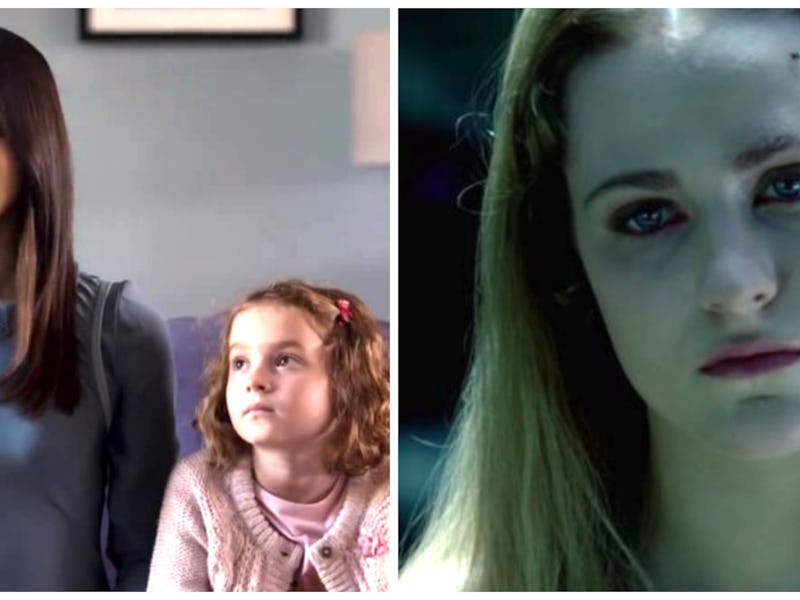Why Synths in 'Humans' Beat the Hosts in 'Westworld'
Robot nannies are more interesting than robot prostitutes any day.

The most satisfying moment in the first season of Westworld was probably when audiences discovered Bernard (Jeffrey Wright) was really a “host,” a robot created to do the bidding of Dr. Ford (Anthony Hopkins). The real reason the reveal was so surprising wasn’t the twist, though, it was the fact that Bernard was pretty much the only robot in Westworld who wasn’t built for sex. As robot tropes go, having humans build humanoid A.I. only to diddle them is pretty old school. Data, circa 1988, had to mention he was “fully functional” in the second episode of Star Trek: The Next Generation. But robots don’t need to get screwed to be interesting science fiction stories. Instead of portraying robots as high-end fuck toys for privileged people, the show Humans presents its synths a bit more generously. The question on Humans isn’t the easily answered would you fuck a robot, but instead, would you let a robot take care of your kids?
Unlike Westworld or Battlestar Galactica, the synths of Humans aren’t really hiding among us. They’re fairly easy to spot thanks to their signature bright aquamarine eyes, kind like Data’s ol’ yellow eyes from The Next Generation. True, the most recent season premiere was all about the Snyth named Niska trying to pass for human, but that concept isn’t something the show leans on. Instead, the Synths of Humans are portrayed more like a servant class, which, if you stop to think about it, makes more sense than the sex-and-violence person-shaped toys of Westworld.
Probably the most interesting Synth in Humans is Anita, also know as “Mia,” the housekeeper robot working for the Hawkins family in Season 1. Yes, it’s true. Joe does have sex with her in Season 1, meaning the robot sex trope is present in Humans too. But, the difference is, at least Joe isn’t supposed to have sex with her. The ethical questions in Humans are more fixed on what people should do with human-looking robots, rather than what hedonistic rich people would do if given enough anonymity. To put it another way, where Westworld is cynical about how humanity would treat a walking, talking artificial intelligence, Humans is more ruminative. The show asks the science fiction question of “what if?” rather than making the repetitive “people are evil” statement over and over again.
Part of this is accomplished through the socioeconomics of Humans. In the most recent premier, Joe loses his middle management job to a Synth, which, if we’re talking about what most people deal with in real life, is a way more interesting plotline than say, rich people having sex with prostitutes while wearing a cowboy hat. If fictional robots are supposed to hold up a mirror to humanity, it’s nice if they reflect something that is actually relatable. Most people haven’t shot anyone in cold blood or paid a prostitute for sex.
But, many people have lost their jobs to automation or gone to couple’s counseling. When Joe and Laura get a Synth for a marriage counselor in the most recent episode, Humans did something that feels new with the age-old trope of humanoid robots: demonstrate how people would actually behave in a situation where a robot replaced a job normally held by a human.
The scene begins somewhat comically: the Synth therapist seems a little detached and unfeeling. But wait. A lot of human therapists are like that too. Though, the larger theme of the show Humans is all about the Synths gaining their independence through sentience (and sometimes vice versa) the most compelling nuggets come in these smaller moments, moments where the audience is shaken by a window of recognition into their own lives.
As obvious as this might sounds, the spandex-clad crew of the Enterprise was much nicer to the android Data than anyone on Westworld was to the Hosts. So, if the unbelievable amount of cruelty perpetrated by everyone in Westworld toward their walking A.I.s rings false, the opposite sunny end of the spectrum (Data on Star Trek) doesn’t work either. That’s where Humans comes in. Obviously, there are a lot of bad people in Humans who don’t see the Synths as sentient beings or don’t want to believe that sentience is emerging. But by challenging the tired trope of humanoid A.I. sex toys, Humans begins to wrestle with much more interesting and complex question: How will people and sentient technology actually live together in the near future?